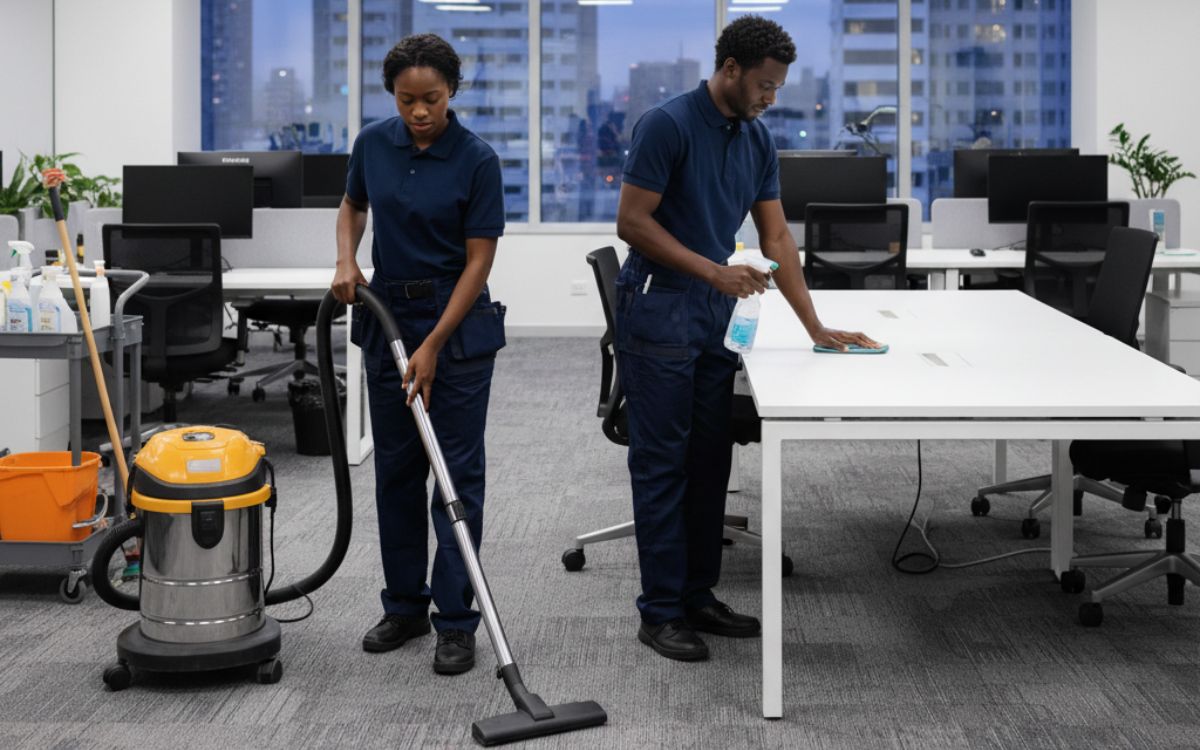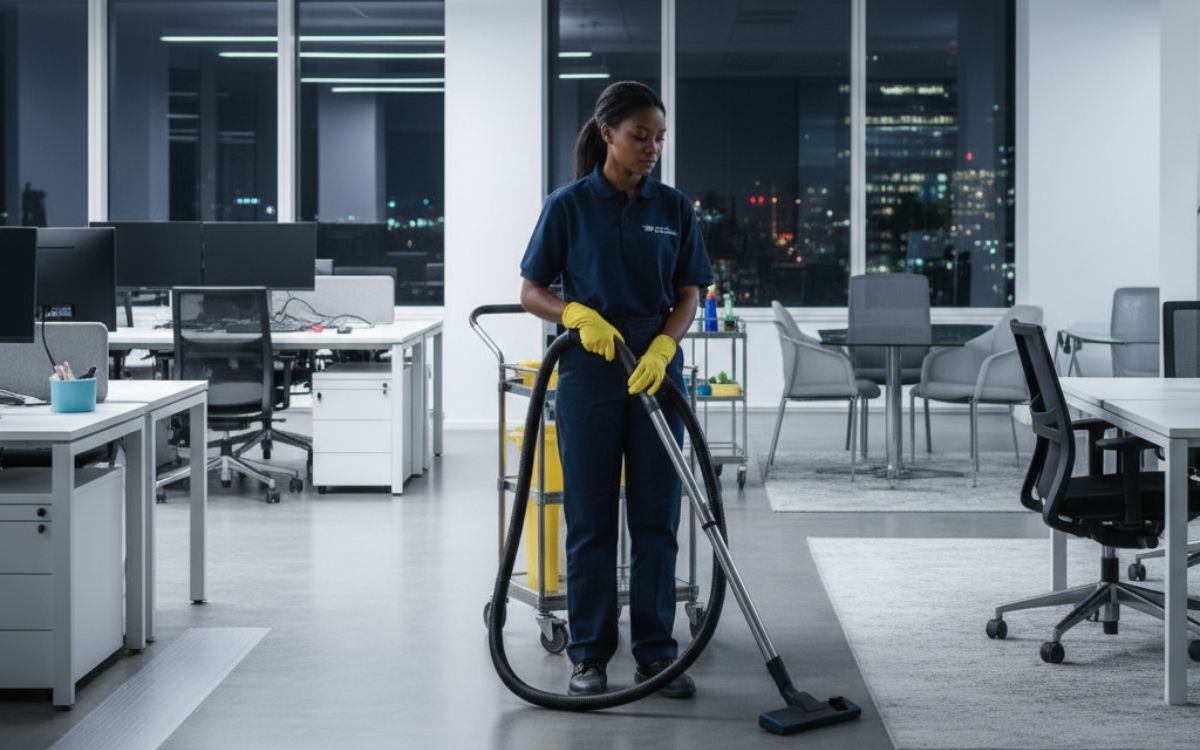For businesses in Johannesburg looking to run smooth and environmentally friendly operations, solar panels are a smart move. But there’s a hidden problem, hard water, that can quietly hurt how well they work. When this water dries on your solar panels, it leaves behind stubborn stains. These hard water stains act like tiny shields, blocking sunlight and reducing the amount of energy your panels can make.
This drop in efficiency directly affects how much money you save and how green your energy solution is. If you ignore this problem, your valuable solar panels might not be doing all they can.
So if you have solar panels installed and want to mitigate this risk, read on to find out what hard water is and how to remove hard water deposits.
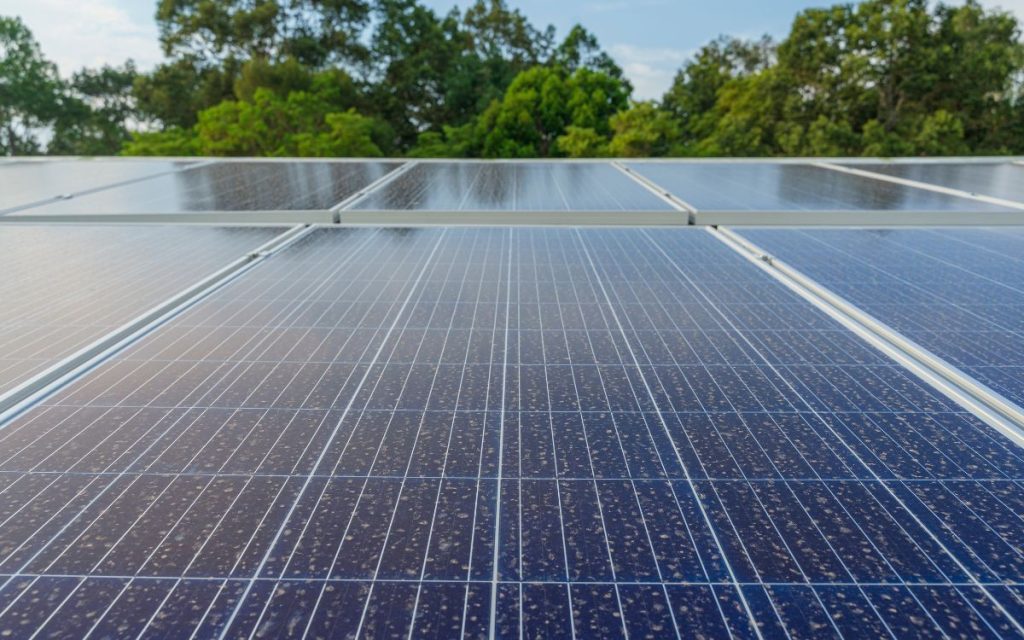
What is Hard Water?
Hard water is water that contains high levels of dissolved minerals, mainly calcium and magnesium. This can lead to issues like limescale buildup in pipes, stains on appliances and soap scum residue. Understanding your water quality and considering water treatment can help manage these high mineral concentrations.
Now that we know what hard water is and how it can cause damage, here are four ways to remove hard water deposits from your solar panels.
1. Avoid Harsh Chemicals and Abrasives
Strong cleaning agents or abrasive tools carry significant risks for your solar infrastructure. Harsh chemicals, particularly those not designed for delicate surfaces, can react with the panel’s protective coatings or the photovoltaic cells themselves. This can lead to permanent damage, such as etching, discoloration, or even micro-cracks that compromise the panel’s ability to absorb sunlight. This reduces energy output and can also void manufacturer warranties.
Similarly, abrasive materials like stiff brushes, scouring pads, or even certain types of cloth can physically scratch the panel surface. These scratches can accumulate over time, scattering light rather than allowing it to penetrate efficiently.
Instead, opt for gentle, eco-friendly cleaning methods. Using soft water, ideally filtered or de-ionized, combined with mild, biodegradable cleaning solutions is far safer. These products are designed to lift mineral deposits without posing health risks to personnel or harming the environment. Professional-grade equipment used with advanced techniques and appropriate cleaning agents ensure the longevity of your solar panels.
2. Skip High-Pressure Washing
Using high-pressure washers can be surprisingly destructive. The intense force of the water jet can damage the delicate seals around the panel edges, allowing moisture to seep in. This compromises the integrity of the panel and can lead to expensive repairs or replacement. Furthermore, high pressure can easily scratch the anti-reflective coating on the glass surface or even fracture the solar cells, reducing the panel’s efficiency and lifespan.
Instead, opt for a safer, non-invasive cleaning method. Low-pressure soft washing, utilising specialised water fed poles, is far more effective and poses no risk to the panel’s structure. These advanced pole systems, used with deionised water, allow you or a professional to reach high or difficult rooftop areas.
Beyond avoiding damage, using a water fed pole system offers key advantages, including:
- Enhanced safety and efficiency: These systems eliminate the need for ladders or lifts, significantly reducing safety risks associated with working at heights.
- Superior results: When paired with deionised water, these systems leave no mineral deposits behind for a spotless finish.
- Optimal environmental and cost benefits: The use of purified water means large volumes of harsh chemicals are not needed.
Prioritising this gentler technique not only ensures the longevity of your solar panel but also helps maintain its warranty.
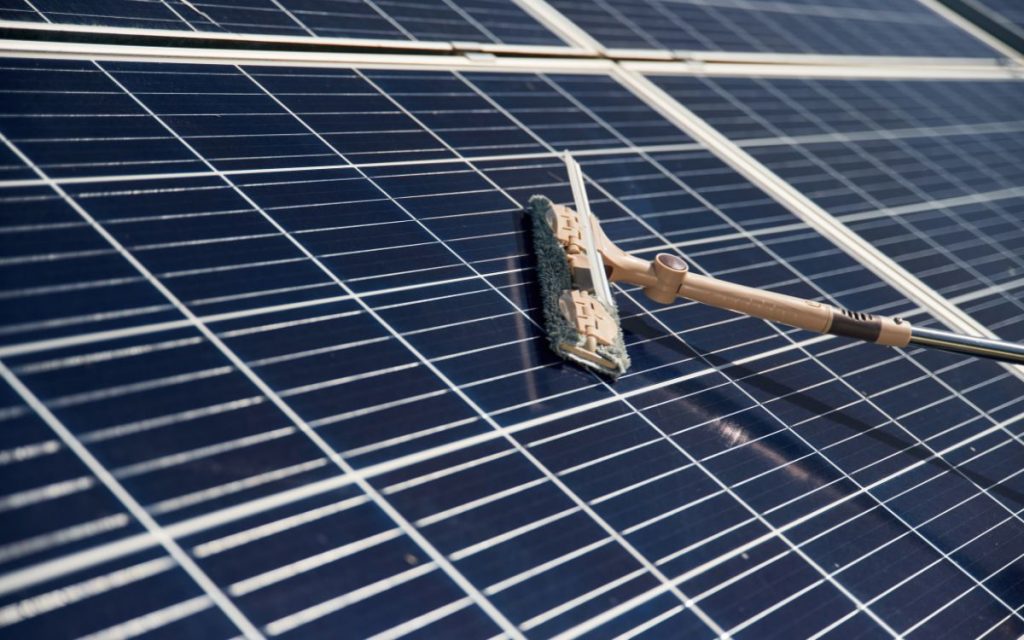
3. Choose Professional Cleaning
The scale and complexity of commercial and industrial solar installations often call for professional intervention. Outsourcing your solar panel cleaning to experts like Cleaning Africa Services offers significant advantages. Our Johannesburg teams are equipped with advanced tools and the knowledge to handle various water conditions, including water hardness. We utilise water treatment methods, such as reverse osmosis and specialised ion exchange resins, to ensure we’re cleaning with water that is virtually free of minerals. This drastically reduces water hardness, eliminating the risk of new hard water deposits.
Beyond preventing limescale, professional cleaning minimises potential health risks associated with improper chemical handling or working at heights. Our specialised cleaning service ensures your panels are meticulously cared for. This translates to lower long-term operational costs, and peace of mind knowing your valuable assets are in expert hands.
4. Prioritise Regular Maintenance
Preventing the long-term damage caused by hard water boils down to consistent, proactive maintenance. Identifying any early signs of mineral buildup, especially in areas prone to hard water is far more cost-effective than addressing severe accumulation. Neglecting preventive maintenance can lead to irreversible panel degradation, increased operational costs due to reduced energy output, and potentially significant downtime for extensive repairs or replacements.
A reliable cleaning partner, equipped with the right water softeners and expertise, can help you craft and execute a maintenance plan that ensures your solar panels consistently perform at their peak.
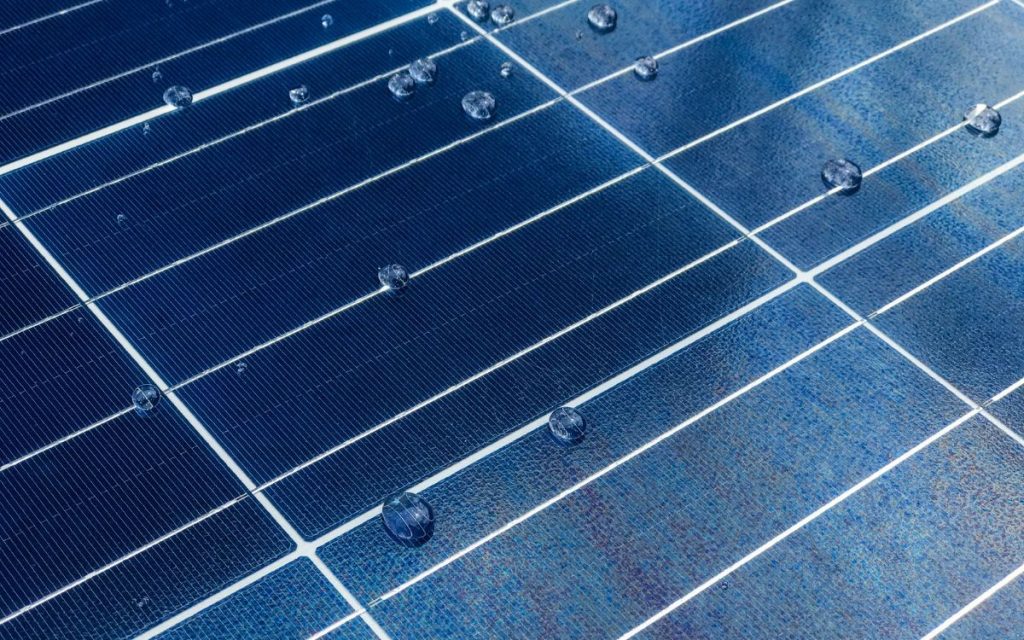
Final Thoughts
Effectively removing hard water deposits from your solar panels is crucial for protecting them from damage and ensures optimal performance. Regular maintenance and the application of proper cleaning techniques, ideally with de-mineralised water is essential for sustained energy output and reduced long-term operational costs.
To secure your solar asset’s future, consider exploring Cleaning Africa Services’ tailored solar panel cleaning services. Our solutions are designed to meet your specific business needs, get a free quote today.


